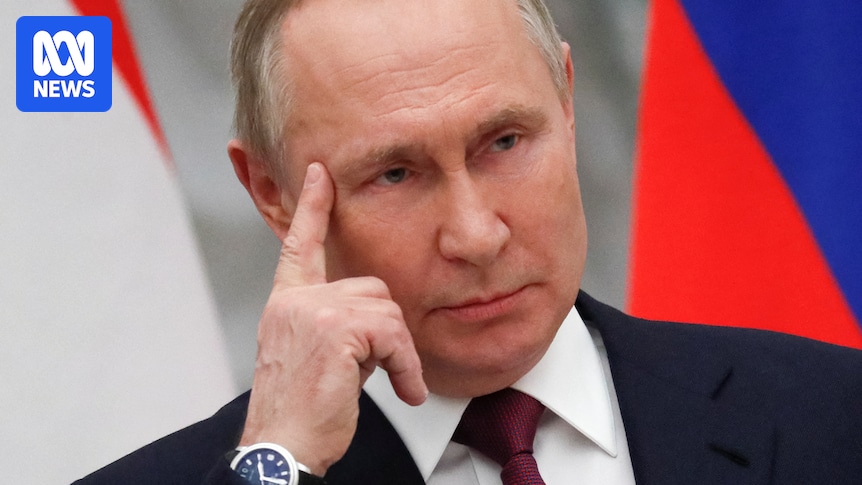
In the bustling metro of Saint Petersburg, Katerina* often finds herself glancing at the screens of fellow commuters. “I see a lot of news like Komsomolskaya Pravda and other pro-state media,” she shared with ABC. This is not surprising, given that major Western platforms like Instagram, Facebook, and YouTube have been inaccessible in Russia for years. The country’s media landscape has become increasingly insular, with independent news sources also being blocked.
Last week, the Russian government tightened its grip on digital communications even further. Foreign-owned encrypted messaging platforms WhatsApp and Telegram, which millions of Russians rely on each month, faced partial restrictions. Kremlin insiders suggest there’s a “99 percent chance” these platforms will be entirely banned soon. Instead, Russians are being encouraged to switch to MAX, a new government-sanctioned messaging app.
The Rise of MAX: A State-Controlled Communication Platform
MAX was introduced in a limited capacity in July, following a law signed by President Vladimir Putin in June that established a national messaging service. This law granted MAX its official status. Developed by VK, the same company behind VKontakte and controlled by state-linked entities, MAX is poised to become an integral part of Russian digital life.
A recent press release claimed that MAX’s user base had grown to 18 million, although the app has not been fully launched. The push to migrate users to MAX is evident, with the telecommunications regulator warning that WhatsApp and Telegram are being exploited by “criminals.” The Kremlin has also announced that MAX will be used for account security on Gosuslugi, Russia’s equivalent of MyGov.
“It is already forced to download and install in schools, and it will track a lot of information,” said Katerina, who has circumvented Russia’s digital blackout to amass a large following on X. “It practically tracks all the information about you.”
Implications for Privacy and Freedom of Expression
Experts warn that the introduction of MAX could have a “chilling effect” on freedom of expression in Russia. Joanna Szymanska, head of programs and strategy for Europe at ARTICLE 19, a global not-for-profit advocating for free speech, expressed concerns about the app’s implications.
“If ordinary people are forced to use this state-controlled app for communication, then obviously they can assume their communication will be watched,” she said.
According to Mediascope, WhatsApp had 96 million users in Russia last month, while Telegram had 89 million. The potential banning of these popular platforms could have significant repercussions for Russian citizens.
Comparisons have been drawn to China’s WeChat, a “super app” that has become essential in everyday Chinese life, offering services from payments to state-sanctioned news. Critics argue that WeChat serves as a “Trojan horse” for government surveillance, and experts fear MAX could follow a similar path.
Challenges and Criticisms Surrounding MAX
Despite its rapid growth, MAX is already facing challenges. This week, the company behind it issued a statement to dispel fears that the app was randomly activating users’ phone cameras after facing online criticism. Additionally, scammers have begun exploiting the platform to defraud unsuspecting users.
Nonetheless, efforts to promote MAX continue. Russian rapper Instasamka recently praised the app to her millions of followers, stating, “I recently downloaded the Max app. I was just amazed.”
Broader Context: Digital Control and Censorship in Russia
The move to restrict foreign messaging apps is part of a broader strategy to tighten digital control in Russia. Virtual private networks (VPNs), which offer a way to bypass online restrictions, are also under threat. Some VPNs have already been banned, and last month, Russia’s parliament passed a draft law that fines individuals for searching “extremist” content online.
“In Russia, extremist basically means any views that are not in line with Kremlin propaganda,” Ms. Szymanska explained. “For example, anything linked to an anti-corruption movement or LGBTQI rights is classified as extremist.”
Ekaterina Mizulina, known as Russia’s “self-appointed” internet censor, has been vocal about the dangers of VPNs. She has gained notoriety for identifying and denouncing online content she deems inappropriate, often alerting authorities.
WhatsApp and Telegram have both criticized the Kremlin’s restrictions. WhatsApp, owned by Meta, stated, “We will keep doing all we can to make end-to-end encrypted communication available to people everywhere, including in Russia.”
However, the recent legislative changes suggest a grim outlook for these platforms. Katerina, 31, noted, “There are adults who don’t have a VPN, they just don’t want to bother with it.”
The digital landscape in Russia continues to evolve, with MAX at the forefront of the government’s efforts to control communication. As the situation develops, the implications for privacy and freedom of expression remain significant.
*Not her real name






